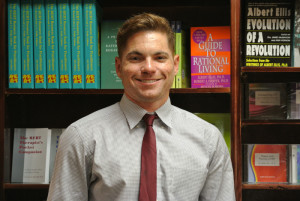by William Taboas, M.A.
We are all both unique and alike at the same time. Even for those of us at the ends of the bell-shaped normal curve, we still encompass humanity and its variety. However, it is easy for us to engage in harsh self-evaluation when we tend to forget that we are not alone in our struggles. As social animals, we have the tendency to make distorted comparisons to other people, often concluding that whatever struggle we currently have is a defect of essence or character deficit. And the more we hold such beliefs, the less likely we engage in change.
Ellis had it right: Paradoxically, to improve and change, you just have to care less about being defective and just be. The process of unconditional self-acceptance is to acknowledge that to err is human. Once we acknowledge our limitations as fallible human beings, we can problem-solve and evaluate more effective ways to adjust and change our self-defeating behaviors. It is this self-compassion that frees us from the burden of the imperative that we must always succeed, we must always please others, we must always be liked, and we mustn’t struggle. Our circumstances and developmental history may be unique, but we don’t have to believe that we are alone in our challenges.

